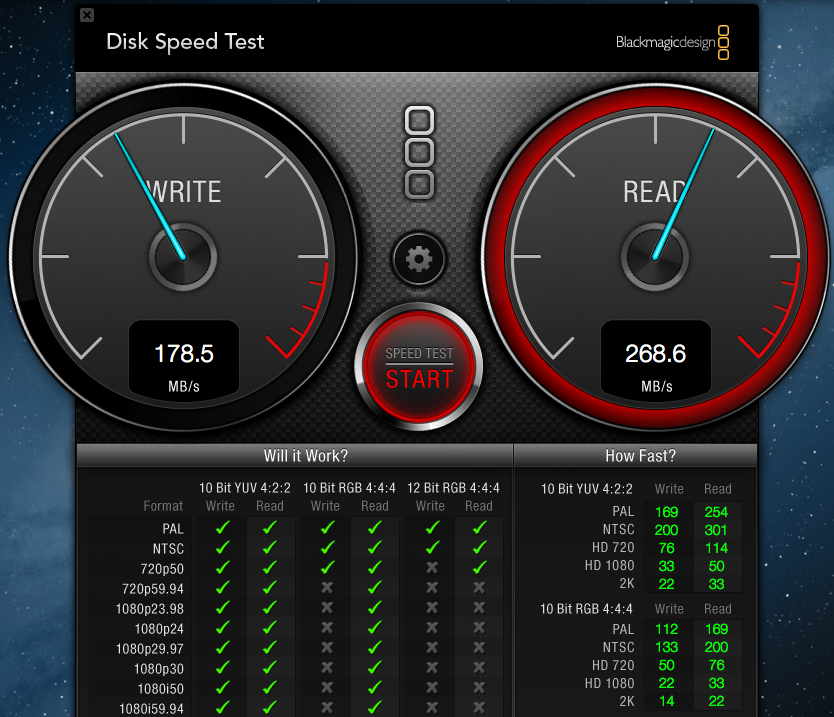
In case of SSD, the file size does not matter that much. If your device is near empty, using file big enough to almost fill the drive will get you the worst case behavior for each test. Small files will give "too good" results for rotational media because the read head does not need to move that much. Using bigger files may reduce the numbers you get depending on drive technology and firmware. Increase the -size argument to increase the file size. Mixed random 4K read and write QD1 with sync (this is worst case performance you should ever expect from your drive, usually less than 1% of the numbers listed in the spec sheet): fio -name TEST -eta-newline=5s -filename=fio-tempfile.dat -rw=randrw -size=500m -io_size=10g -blocksize=4k -ioengine=libaio -fsync=1 -iodepth=1 -direct=1 -numjobs=1 -runtime=60 -group_reporting Random 4K read QD1 (this is the number that really matters for real world performance unless you know better for sure): fio -name TEST -eta-newline=5s -filename=fio-tempfile.dat -rw=randread -size=500m -io_size=10g -blocksize=4k -ioengine=libaio -fsync=1 -iodepth=1 -direct=1 -numjobs=1 -runtime=60 -group_reporting Sequential WRITE speed with big blocks QD32 (this should be near the number you see in the specifications for your drive): fio -name TEST -eta-newline=5s -filename=fio-tempfile.dat -rw=write -size=500m -io_size=10g -blocksize=1024k -ioengine=libaio -fsync=10000 -iodepth=32 -direct=1 -numjobs=1 -runtime=60 -group_reporting Sequential READ speed with big blocks QD32 (this should be near the number you see in the specifications for your drive): fio -name TEST -eta-newline=5s -filename=fio-tempfile.dat -rw=read -size=500m -io_size=10g -blocksize=1024k -ioengine=libaio -fsync=10000 -iodepth=32 -direct=1 -numjobs=1 -runtime=60 -group_reporting Note that for any accuracy, you need to specify exactly what you want to measure.
#BLACKMAGIC DISK SPEED TEST LINUX MANUAL#
It requires reading the manual ( man fio) but it will give you accurate results. If you want accuracy, you should use fio. When you click on anyone button it starts benchmarking of hard disk.) (In older versions, you will find and two buttons: one is for “Start Read Only Benchmark” and another one is “Start Read/Write Benchmark”. Now click “Benchmark Disk.” menu item under the three dots menu button, in the pane to the right.Alternatively, launch the Gnome disk utility from the command line by running gnome-disks.(In older versions of Ubuntu, go to System -> Administration -> Disk Utility)

Otherwise, mount it on /tmp and write then delete the test output file.

If the drive doesn't have a file system (and only then), use of=/dev/sda. Sudo hdparm -v /dev/sda will give information as well.ĭd will give you information on write speed. Timing buffered disk reads: 234 MB in 3.00 seconds = 77.98 MB/sec Timing cached reads: 12540 MB in 2.00 seconds = 6277.67 MB/sec


 0 kommentar(er)
0 kommentar(er)
